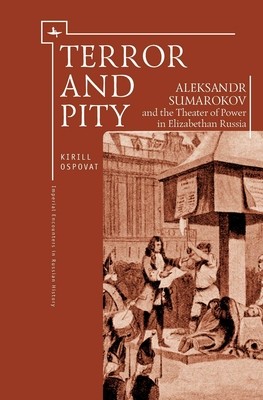
- We will send in 10–14 business days.
- Author: Kirill Ospovat
- Publisher: Academic Studies Press
- ISBN-10: 1618114727
- ISBN-13: 9781618114723
- Format: 15.6 x 23.4 x 1.9 cm, hardcover
- Language: English
- SAVE -10% with code: EXTRA
Reviews
Description
Situated on the intersection of comparative literary criticism, political history and theory, and cultural analysis, Terror and Pity: Aleksandr Sumarokov and the Theater of Power in Elizabethan Russia offers an in-depth reading of early Russian tragedy as a political genre. Imported to Russia by Aleksandr Sumarokov around 1750, tragedy reenacted and shaped the symbolic economy and the often disturbing historical experience of "absolutist" autocracy. Addressing half-forgotten texts and events, this study engages with literary and cultural theory from Walter Benjamin to Foucault and "new historicism" in order to contribute to a broader discussion of early modern "poetics of culture."
EXTRA 10 % discount with code: EXTRA
The promotion ends in 19d.21:22:41
The discount code is valid when purchasing from 10 €. Discounts do not stack.
- Author: Kirill Ospovat
- Publisher: Academic Studies Press
- ISBN-10: 1618114727
- ISBN-13: 9781618114723
- Format: 15.6 x 23.4 x 1.9 cm, hardcover
- Language: English English
Situated on the intersection of comparative literary criticism, political history and theory, and cultural analysis, Terror and Pity: Aleksandr Sumarokov and the Theater of Power in Elizabethan Russia offers an in-depth reading of early Russian tragedy as a political genre. Imported to Russia by Aleksandr Sumarokov around 1750, tragedy reenacted and shaped the symbolic economy and the often disturbing historical experience of "absolutist" autocracy. Addressing half-forgotten texts and events, this study engages with literary and cultural theory from Walter Benjamin to Foucault and "new historicism" in order to contribute to a broader discussion of early modern "poetics of culture."


Reviews